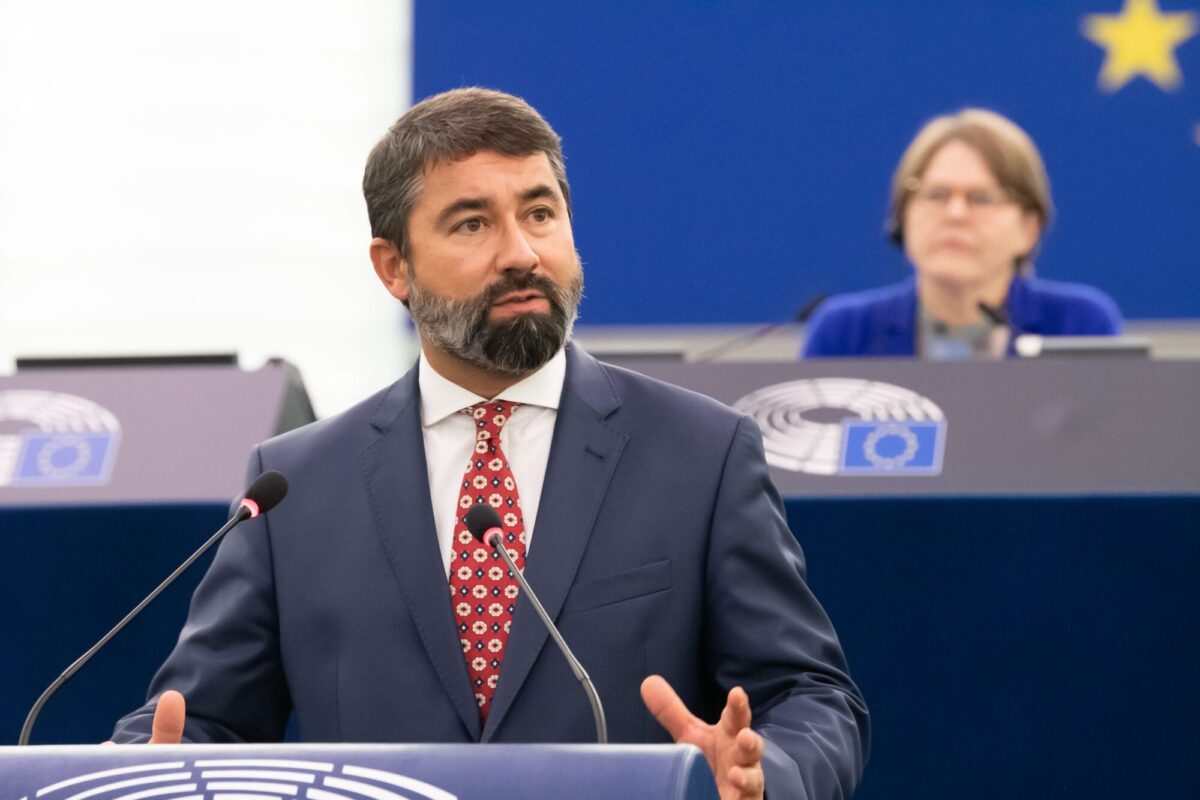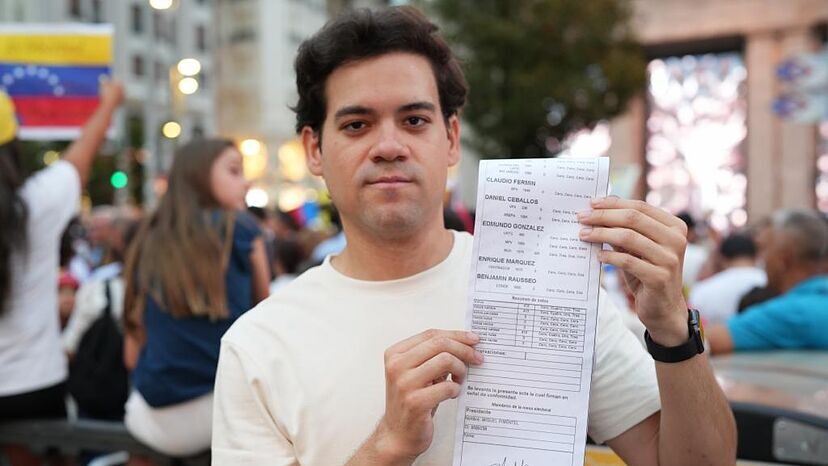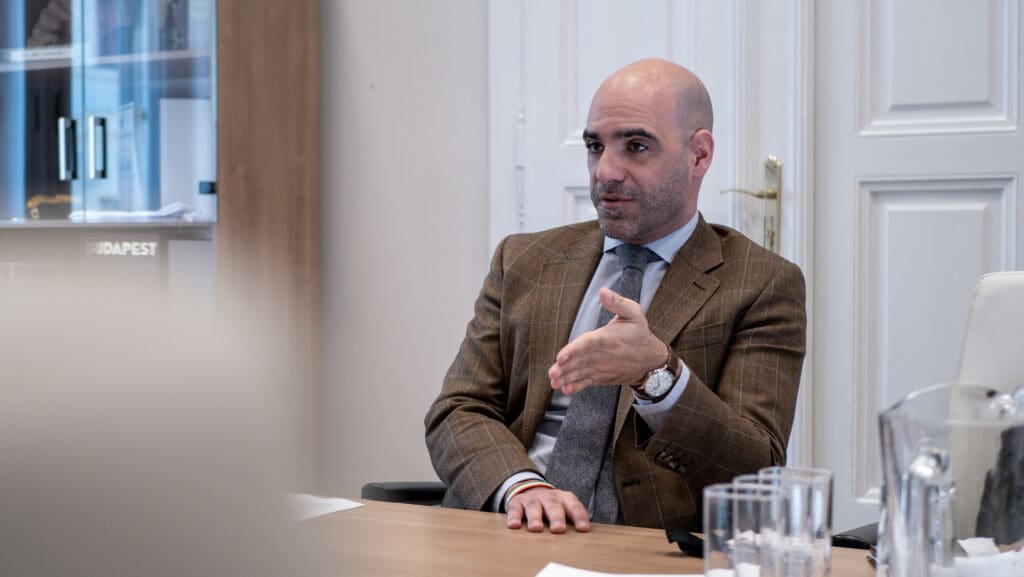Balázs Hidvéghi has been an MEP for the Fidesz party since 2019. Until his arrival in Brussels, he was the Fidesz communication director and a member of the Hungarian Parliament.
In February, speaking on immigration, you turned to EPP members and said: “You are eight years late but better late than never.” Have they really realised the situation or is it merely a convenient reaction to the success of Hungarian and Polish politics, and the coming to power of conservatives in Italy or Sweden?

The European People’s Party was once a true centre-right European political family that based its politics on Christian Democratic values. In recent years, however, it has increasingly abandoned these values and, in exchange for a few positions or pats on the back, yielded to the pressure coming from the European Left. The EPP let the left-wing groups in the European Parliament drive them into a corner not only on value-based topics, such as for example migration, gender, human rights, or subsidiarity, but more often on economic policies as well. As a consequence, the support of the European People’s Party began to plummet throughout Europe. Many in the EPP are now starting to realise that if they want to remain the largest political group after the 2024 elections, they must take a more characteristic position on the topics of most interest to European citizens.
In addition, the biggest corruption scandal in the history of European politics has somewhat limited the political manoeuvring possibilities of the Socialists and Democrats group in the European Parliament. The European People’s Party took the opportunity and gathered a bit of courage—which it had sorely lacked in recent years. The success of the conservatives in Italy and Sweden also contributed to giving back a bit of confidence to the EPP. Thus, they took a huge turn on the subject of migration. Today, on the issue of migration, the EPP follows Viktor Orbán’s policy when it demands EU funds for border fences. As I also said in my speech: better late than never!
I ask you this because the two big parties in the European Parliament still insist on denying reality. Despite the energy crisis they continue to push a green agenda, propose the end of combustion cars, or promote the consumption of insects.
At a certain point in politics, reality always kicks in. With the devastating effects of the war in Ukraine and the economic effects of European sanctions on Russia, it is clear that pushing an ideological agenda instead of representing the real interest of voters is not sustainable. We are not living in times where there is room for unrealistic ideas and wishful thinking. Europe has to stand up and represent its own interests on the global scale and preserve its competitiveness on the global market. If the big political parties do not change their policies on a wide range of issues, such as the green agenda, economic competitiveness, or migration, they will see the consequences at the 2024 elections.
What do you think of the EU’s attempt to adopt the Istanbul Convention over national constitutions? Is this not contrary to the so-called rule of law?
The need to take action against any kind of violence against women and children is beyond dispute. There is no debate about that. The debate about the Istanbul Convention, however, is not about this. It is about instrumentalising the fight against violence to push a radically left-wing political agenda. Several member states refuse to ratify the convention because of its content pushing gender ideology and encouraging migration. We can clearly conclude that the Istanbul Convention has failed. Therefore, the attempt to impose it on the member states on behalf of the European Union is outrageous. Adopting the convention in this way is a violation of the principle of subsidiarity and it violates the competences of member states. It also creates an uncertain situation from an international legal point of view, as the EU would become part of a convention, which is not binding on all of its member states individually. This would set a very dangerous precedent that could cause legal problems in the future. It appears that respect for the rule of law and respect for the treaties only matters to the European Left when they can abuse it to attack their political opponents.
Given that the rule of law mechanism is only applied against conservative governments, don’t you think it has lost all legitimacy?
It is obvious to every rationally thinking person that the so-called rule of law procedures are, in reality, politically motivated attacks against conservative, Christian democratic governments. These attacks against Hungary intensified after the migration crisis in 2015, when the Hungarian government made it clear that it would not tolerate illegal immigration. They grew even stronger after the adoption of the law on child protection in 2021, which protects children from LGBT propaganda. In response, the European Left has launched political attacks in legal disguise, weaponising the concept of the rule of law. The main idea is that if a conservative government adopts a policy that is not in line with their latest, increasingly absurd ideas, they immediately announce the violation of the rule of law. Thus, discussions surrounding the rule of law on the EU level are, in reality, political in nature, and not mere legal debates. One main feature of these debates is the upholding of a double standard: the rule of law is never questioned in countries led by left-wing governments, but right-wing governments are attacked on a daily basis.
I also think that there is another element to this. The reason that attacks are often directed towards Central and Eastern European countries is that these countries have shown that they want to go their own way and do not agree with the increasingly ‘woke,’ progressive elites that dominate in Western Europe. They have also proven that it is possible to achieve economic success while building a conservative, Christian-based society. This annoys Western European elites who adhere to a liberal and progressive ideology.
The Qatargate or Moroccogate scandal, depending on where the bribery comes from, involves new socialist MEPs every week. Shouldn’t all the agreements and resolutions taken by the European Parliament in favour of these countries be quarantined?
It would be more accurate to call it the Brussels corruption scandal. In itself, it is not surprising that foreign powers seek to influence European decision-making, be it from the Arab world or elsewhere. This scandal has shed light on the functioning of a sprawling network of MEPs, staff members, and NGOs in the European Parliament, but also seems to have affected the European Commission. This reflects the systematic deficiencies of the European institutions in a broader sense. Without a doubt, this is the most severe corruption scandal in the history of the European Union. What we see as a reaction from the European Parliament is rather weak and superficial: no real change is implemented in the internal rules, and there is a general atmosphere of sweeping everything under the carpet. This is because the creators and beneficiaries of the corruption machine can hardly be expected to reform this system by themselves. I believe that a proper answer to this system of corruption can only be given by European citizens in the upcoming 2024 elections.
This corruption scheme employed two NGOs: No Peace Without Justice and Fight Impunity, a name that sounds like a bad joke. Has the time come to put an end to the pressure of these lobbies and NGOs in Brussels? Are you surprised by the lack of media coverage of this case?
I seriously think that a complete overhaul of this system is the only way forward. The EU cannot be politically credible if it is taken hostage by NGOs and lobbies. The main problem here is that these NGOs are not real civil society organizations, but political manipulators that produce politically-biased reports, which are then copy-pasted into European Union positions and documents. Now, it also turns out that some of these NGOs are, in reality, front organisations involved in criminal deals and activities. The real scandal here is that the EU has left the doors wide open to these shady NGOs and has given them millions of euros of European taxpayers’ money, without demanding even a minimum of transparency from them. In fact, the European Commission keeps giving privileges and exemptions to these NGOs. It is no surprise that the mainstream, left-leaning media does not report much on the issue: it would shed light on how faulty the functioning of the entire EU bureaucracy really is.
In Hungary, the government has implemented all sorts of measures to improve transparency and fight corruption. However, as you point out, Brussels has not taken similar measures in the wake of this huge scandal. What consequences do you think Qatargate will have?
It is God’s sense of humour that many of the politicians now behind bars or under investigation were the most vocal in giving Hungary lectures on how to fight corruption. The Brussels bubble is now making every effort to trivialise the corruption scandal, and they are attempting to create the impression that these were just individual stumbles by certain MEPs. As mentioned before, I am completely sure that a thorough reform of the corrupted EU-system will not come from within. I rather have high hopes that citizens throughout Europe will give a snappy answer to the Brussels corruption scandal at the 2024 European Parliament election.






